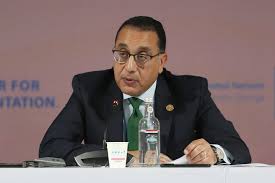
Egyptian President Abdel Fattah El-Sisi received Sheikh Mohammed bin Zayed Al Nahyan, President of the United Arab Emirates, at Al-Ittihadiya Palace on Monday, underscoring the close ties and ongoing coordination between the two nations.
The visit, described as a continuation of robust bilateral consultations, saw both leaders engage in discussions on investment, regional developments, and cooperation across multiple sectors.
Ambassador Mohamed El-Shenawy, spokesperson for the Egyptian Presidency, detailed that the meeting included an expanded session with delegations from both countries, a private bilateral discussion between the leaders, and a working luncheon hosted in honour of the Emirati president and his delegation.
President El-Sisi emphasised the strength of Egyptian-Emirati relations, praising the rapid development in trade and investment partnerships. He also reaffirmed Egypt’s commitment to removing any obstacles facing Emirati investors, noting the recent boom in economic engagement between the two countries.
Sheikh Mohammed bin Zayed Al Nahyan, in turn, praised Egypt’s evolving investment climate, highlighting the improvements in the business environment and the steps taken to attract foreign capital.
The discussions also addressed pressing regional issues, with particular focus on the situation in the Gaza Strip. Both leaders welcomed former U.S. President Donald Trump’s initiative aimed at halting the conflict, stressing the need to support diplomatic efforts to achieve a lasting and comprehensive peace in the region.
Analysts note that this high-level engagement not only reinforces economic cooperation but also positions Egypt and the UAE as key partners in addressing regional stability and development. The visit reflects a broader trend of Gulf investment in Egypt, which has been a cornerstone of the country’s economic strategy in recent years.
With bilateral ties strengthened and investment obstacles set to be removed, the talks signal a renewed commitment to expanding trade, fostering industrial growth, and advancing shared interests in the Middle East and North Africa.



